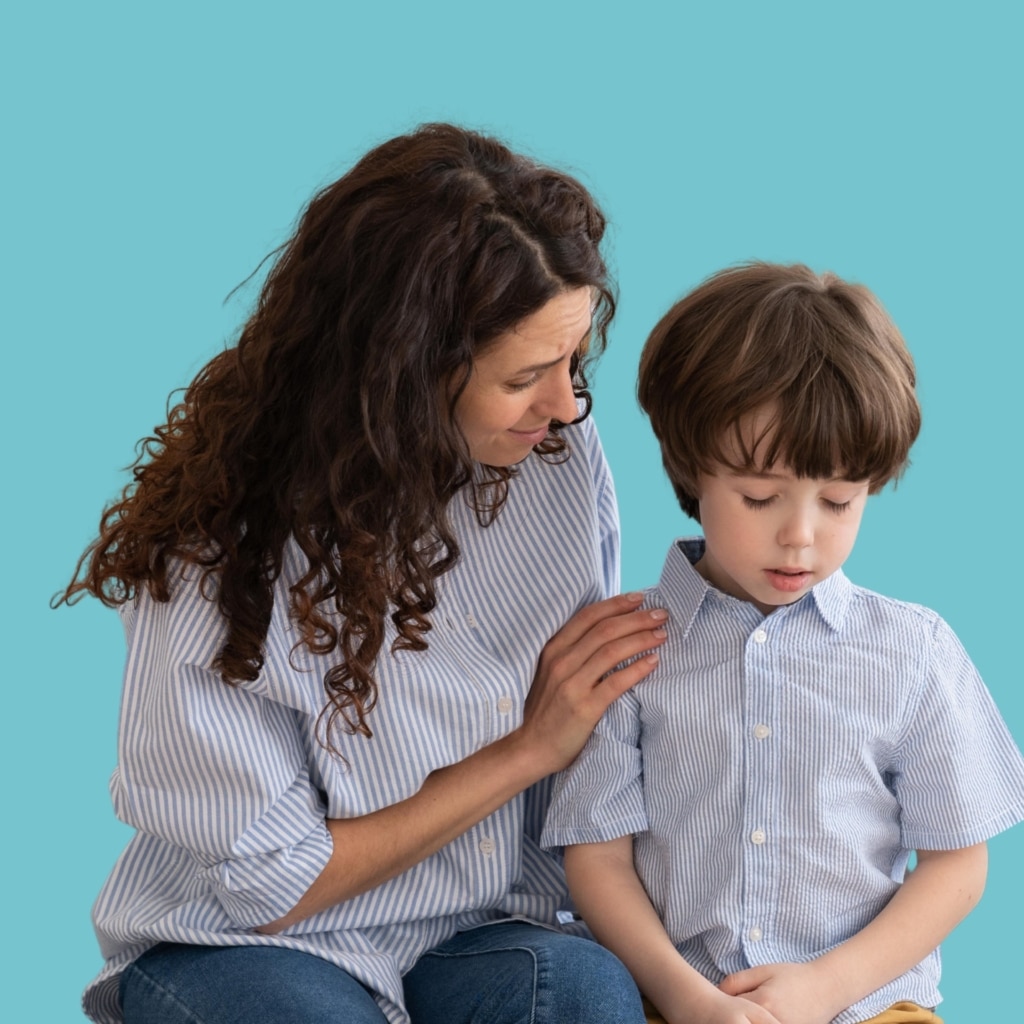
A parent who is diagnosed with breast cancer certainly wants to protect their child from the consequences of the disease. So it is very natural to ask yourself the question: Is telling them the right thing to do? Or not telling them in order to protect them? Whatever your decision, remember: your choice is your own and is personal.
If you decide to talk to them, here are some recommendations from specialists, including Gabrielle Fortin, social worker, professor at Université Laval and researcher in psychosocial oncology. They mention the importance of telling them the truth… gently.
We interviewed Ms. Gabrielle Fortin in order to help guide you through this process and to provide you with some tips and resources.
Children can sense some of what we DON’T say
Children feel a lot of the emotions of the adults they engage with on a daily basis. So, as a parent, it is sometimes difficult to hide certain feelings or situations from them. Talking to children and telling them the truth is one way of showing them that you trust them. It can also show that you think they have the resources to deal with the situation, and that gives them self-confidence. This way, children learn that they can trust you, too.
In a situation such as announcing a diagnosis, children may interpret the “new” reactions of the parent(s) in different ways. We know that breast cancer can cause many mood changes, a lot of stress and a loss of energy that can lead to a decrease in the attention you can give to your family and friends. By talking to them, you deconstruct the possible inferences they might make on their own, which can sometimes be hard for them to live with (“It’s my fault that…”).
Honesty and openness are therefore very important. Even if the intent is to protect them, what is left unsaid can ultimately be very damaging because your child, no matter how old, knows you and can sense when something is wrong.
1. Is there a more or less appropriate time to announce the diagnosis?
It is important to give yourself time to digest the shock of the diagnosis, but also to think about what you are going to tell the children. It is very understandable that you may delay the announcement out of apprehension, or because you simply do not know how to phrase it.
Gabrielle Fortin says it is important to have a space to be able to prepare for the announcement. But whatever your diagnosis, it’s best not to wait too long to talk about it, because there will never be a “perfect” time to discuss such a delicate subject.
If there are several children, it is entirely possible to tell all the siblings at once. But depending on their age difference, it may be necessary to explain different things to them at different times. Ms. Fortin points out that each parent is the greatest expert on their child and that there is no single formula, because every family dynamic is unique. The important thing is to choose the way that suits you best. To help you, identify a moment in your routine that is traditionally a quality time with your child (at breakfast on the weekend, at dessert during a weekday dinner or before bedtime stories, for instance).
2. How do we talk to children about breast cancer?
Generally, the person who has been diagnosed is in the best position to talk about it, and therefore to make the announcement, if possible of course. Ideally, the other parent or a close family member can also be present at the time of the talk, to support you. This shows the children that they are part of a close-knit team in this ordeal, which can be very reassuring and comforting for them. It also allows them to see that they can confide in this other person if necessary.
Be aware that no child is too young to know the truth: however, it is advisable to choose words that are appropriate to their age and stage of development. The situation can be explained in a calm tone of voice, using precise terms and simple definitions. To help you, don’t hesitate to ask the child what he/she understands about what you have just said, and to ask if he/she has any questions. It is also advisable to go slowly and step by step, one piece of information at a time, to give the child time to assimilate the information. Children will ask questions gradually as they are ready to hear the answers. A word of advice: it is important that the child feels that the door is always open to ask questions or to express their feelings.
3. The moment of the announcement: is it possible to anticipate and prepare?
When the announcement is made, the children may surprise you with an unexpected reaction, or they may not react at all. You will have to be patient and accept their reactions. The important thing is that they know you will be there to listen when they are ready to talk. You could also validate their level of understanding by asking them to explain in their own words what they comprehend about the situation and the disease. Ask them regularly how they feel and if they have any questions. Be attentive, listen to their concerns and validate their emotions.
4. During and after the announcement: What if I don’t have the answers?
Children may ask questions that the parent does not have answers or solutions for at the moment, and it is normal to wonder how to answer them. Again, honesty and gentleness are key. You can simply say you don’t know, while explaining what you DO know now, and promising to keep your child informed as the situation develops. In any case, the important thing is not to make promises without knowing for sure.
5. Preparing children for change: our tips
Faced with the various changes on the horizon, children may wonder if what is happening is normal. Taking one day at a time, you can gradually inform them of the disease’s progress, treatments or any changes that affect the family, the routine, but also your appearance and your availability. Of course, illness brings uncertainty about future changes. Being honest with children, explaining the unpredictability of certain things, may help them to better cope and accept them. It is also important for parents to maintain a certain amount of flexibility, explains Ms. Fortin, who urges them “not to put too much pressure on themselves; everything can be fixed and everyone can adapt as they go along.”
Remember, every family and every cancer case is different. These tips should be adapted to your personal communication style, and to your family and personal situation.
The Foundation is here to provide you with psychological support following a breast cancer diagnosis. In order to help you through the many emotional challenges of this disease and to regain a sense of balance in your day-to-day life, you can receive psychosocial support during individual or family meetings with our social worker, in person, by phone, or by videoconference. Call us at 1 855 561-PINK or write to us at soutien@rubanrose.org.


